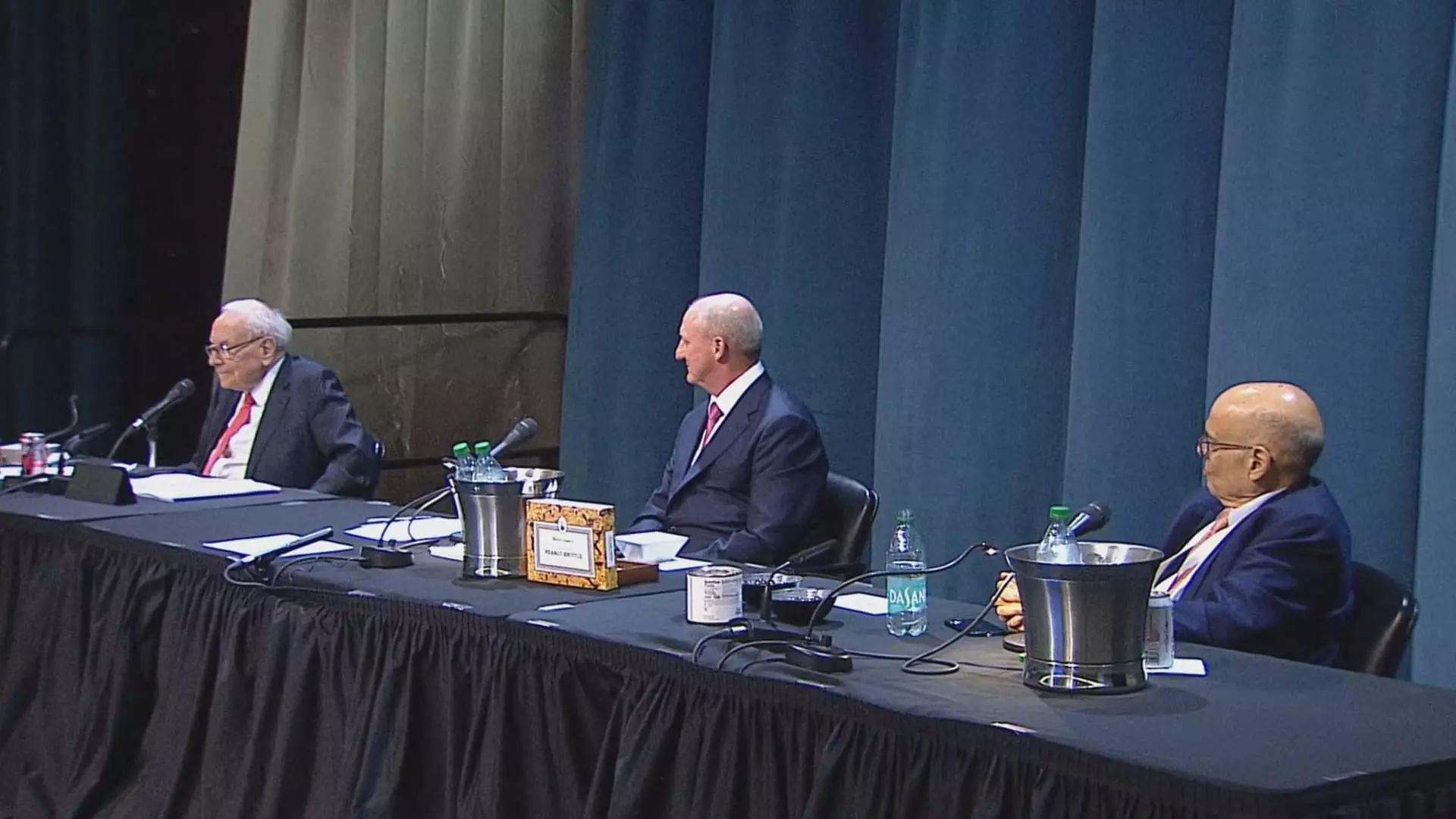In the world of finance, few names resonate with the authority and reverence that Warren Buffett commands. The impending end of his tenure as CEO of Berkshire Hathaway at the age of 95 marks not merely the conclusion of an era, but also opens the doors to profound reflections on his investment philosophies. While the “Oracle of Omaha” prepares to step down, his insights remain pertinent, if not transformative. The upcoming Berkshire Hathaway annual meeting will undoubtedly serve as a bittersweet occasion for admirers, but let’s delve into seven key insights that were highlighted in recent discussions—insights that should not go unnoticed as we approach the post-Buffett era.
The Challenge of Real Estate: Why Stick with Stocks?
If there’s one categorical belief that Buffett firmly holds, it’s that investing in stocks is infinitely simpler than dealing with real estate. The hours spent navigating property transactions, lengthy negotiations, and the often convoluted experiences associated with ownership make real estate a cumbersome choice for many. The Oracle’s perspective is provocative: he notes that one can transact billions in stocks within moments at the New York Stock Exchange, a convenience that starkly contrasts with the cumbersome logistics in real estate.
Buffett’s assertion elicits a broader dialogue about accessibility and ease in investment strategies. For many everyday investors, the stock market is more than a financial instrument; it is a democratic platform for wealth building. Viewing real estate through Buffett’s lens lays bare its complexities, essentially advocating for simpler, more liquid investment vehicles that align with the fast-paced modern economy.
The Underappreciated Power of Long-Term Investments
Buffett recently revealed that a small cadre of investments has accounted for a disproportionately large share of Berkshire’s profits. This notion of focusing on a select few “home run” ideas challenges the common entrepreneurial notion of diversification yet underscores a critical principle in investing: quality over quantity. In a landscape saturated with relentless advice to diversify, Buffett invites us to consider the profound value of patience and commitment.
This approach to investing is not only effective but also liberating; it allows investors to concentrate their mental bandwidth on identifying extraordinary opportunities rather than being bogged down by a scattergun approach. For those who find themselves in the thrall of daily news and stock fluctuations, Buffett’s strategy signals a return to discipline and long-term focus.
A New Age for Japanese Investments
Buffett’s foray into Japanese equities back in 2020 painted a fascinating picture about the need for investors to remain adaptable and open-minded. His identification of ‘sogo shosha’—a term for Japan’s trading companies—highlights the enduring importance of research, even in our digital age. What stands out is how he stumbled upon this investment idea entirely by perusing a handbook; it sheds light on the necessity for curiosity and the exploration of lesser-known markets.
This revelation encourages investors to evade the traps of conventional wisdom and venture into unchartered territories. The idea that diligent research can lead to exceptional investments resonates strongly in today’s rapidly changing market environment, where the next big opportunity might lie in unfamiliar sectors or regions.
Float: Financial Freedom Explained
Buffett’s examination of insurance float presents a potent narrative about leveraging financial structures for profitability. The concept of float—the capital held temporarily between premium collection and claim payout—is presented as “absolutely free money.” This assertion illustrates not only the uniqueness of Berkshire’s insurance model but also reflects Buffett’s gift for identifying underappreciated aspects of business finance.
Therein lies an important lesson for investors; financial instruments are often misunderstood and can serve as powerful allies when wielded correctly. Buffett’s view positions float in a light that could revolutionize conventional investment metrics, suggesting that to truly understand a business, one must look beneath the surface to its financial strategies.
Advocating for Balance Sheets Over Income Statements
One of Buffett’s more understated but powerful insights is his emphasis on analyzing balance sheets rather than income statements. This perspective underlines a fundamental misconception prevalent within the investing community—prioritizing short-term earnings over long-term financial health. Analyzing liabilities and assets offers a more comprehensive understanding of a company’s durability.
This contrasts sharply with the rapid-fire trading mentality that pervades Wall Street today. Buffett’s insight challenges investors to cultivate a more robust analytical mindset, one that values sustained financial integrity over ephemeral profit margins.
A Legacy of Actionable Wisdom
Buffett’s insights, gathered over more than six decades in the industry, provide a template for thoughtful investment based on proven principles. His clarity on complex topics—real estate, international markets, and corporate finance—combined with his preference for a limited number of impactful ideas, crafts a profound legacy.
As he approaches retirement, his messages shift from transactional advice to philosophical explorations of wealth and investment, urging a generation wresting with complexities to find simplicity and opportunity in patience. Buffett’s life work stands as an enduring testament to the importance of wisdom, humility, and relentless curiosity in the arena of investment.

